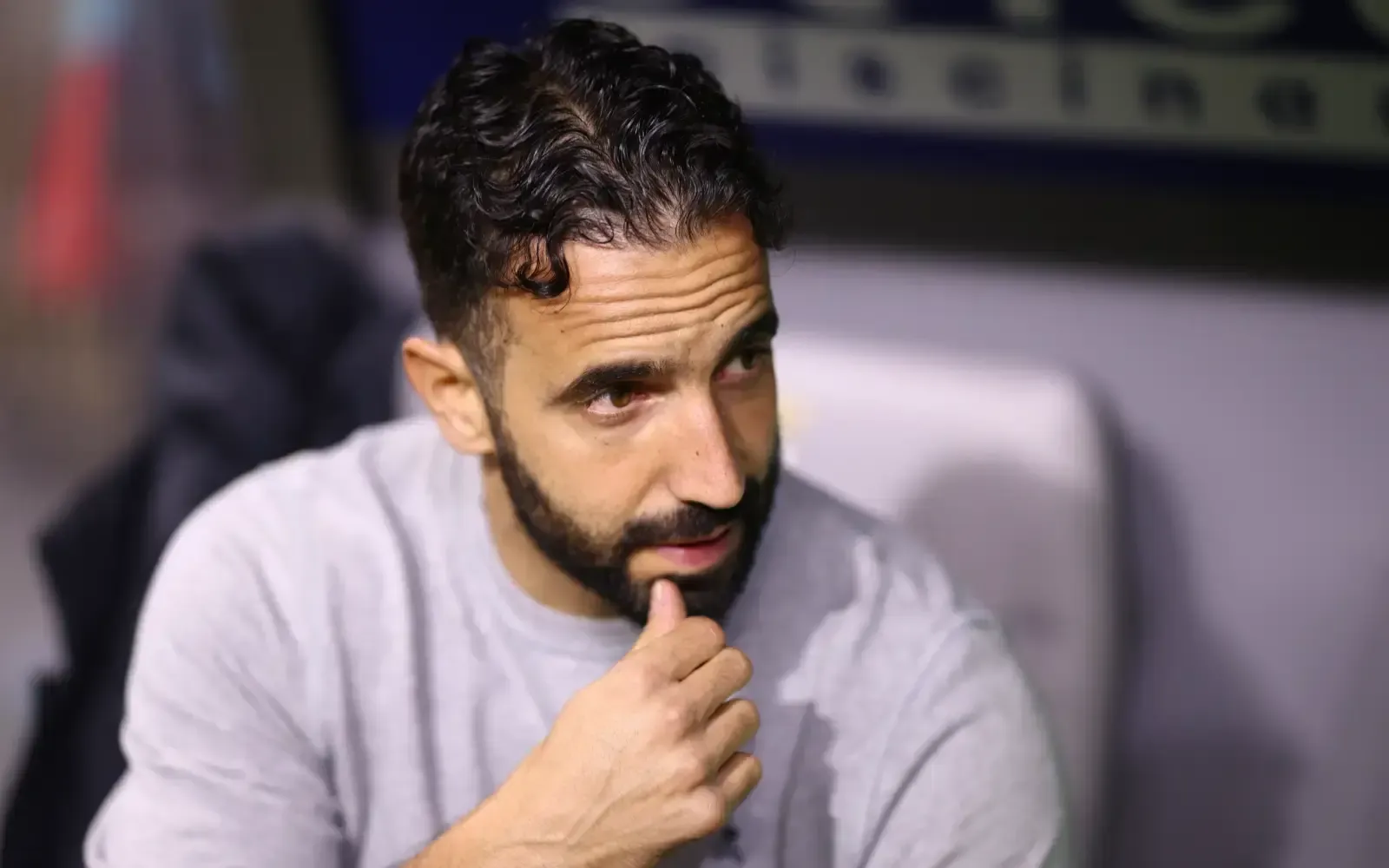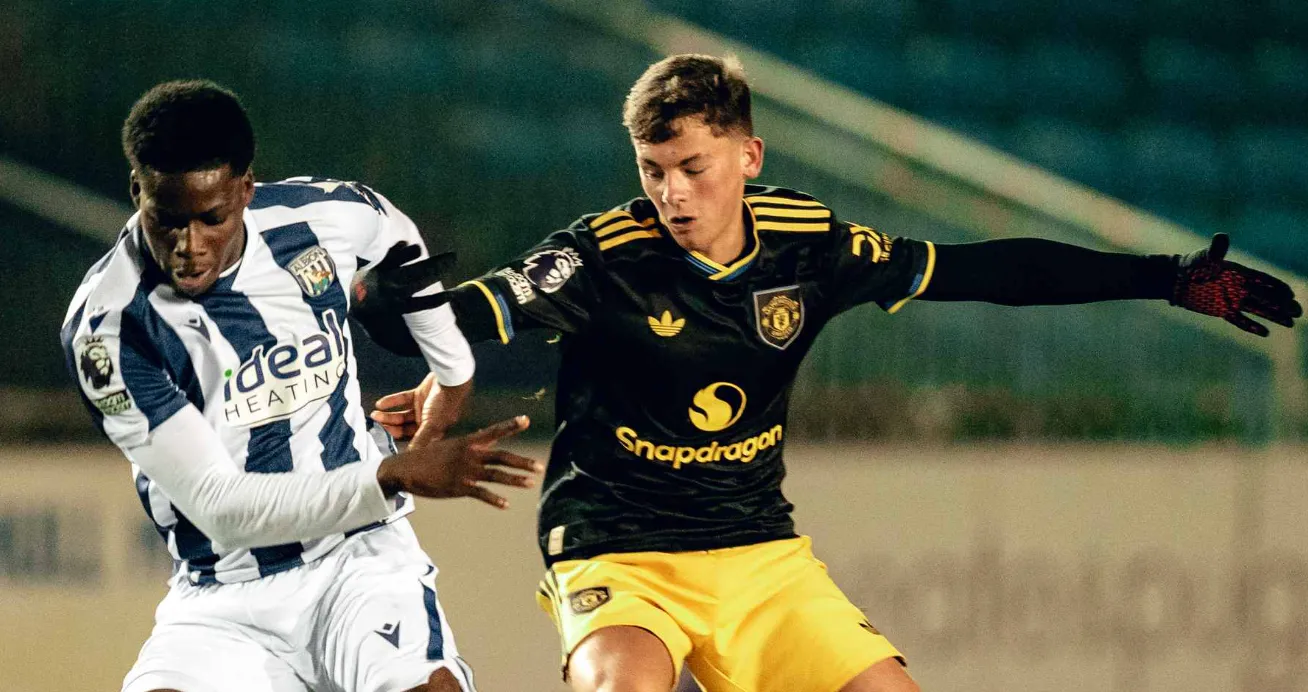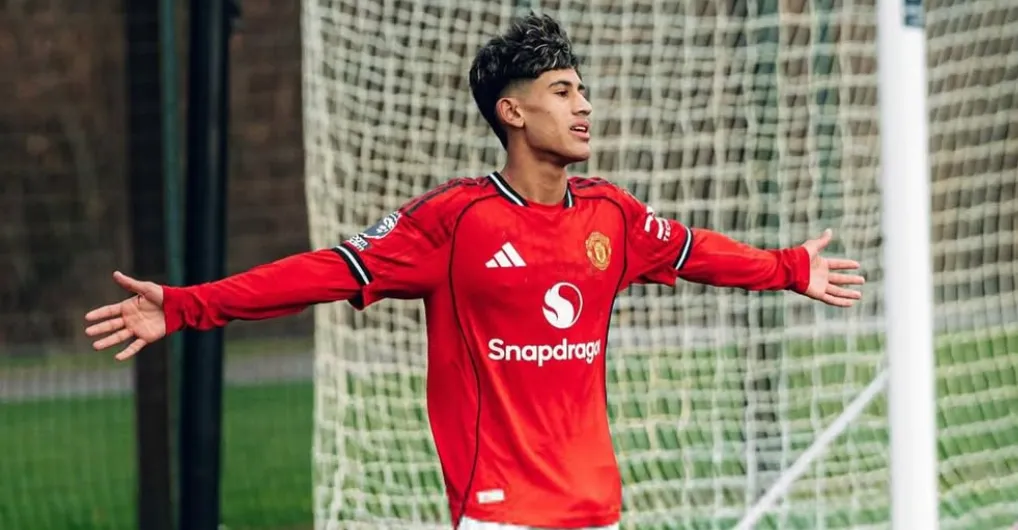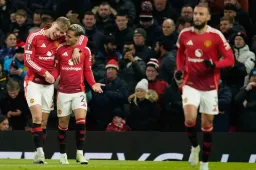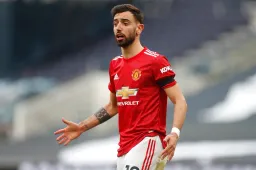Rooney says Man Utd are 'too rigid' under Amorim and why Chido Obi isn't the answer
NewsTuesday, 06 May 2025 at 20:11
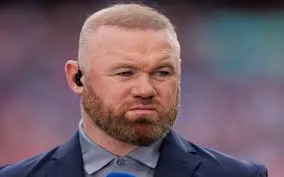
Manchester United legend Wayne Rooney has issued a stark warning about the tactical direction of the club under manager Ruben Amorim, questioning whether the Portuguese coach’s rigid 3-4-2-1 system is suited to the current squad.
Speaking on the Stick to Football podcast, Rooney, United’s all-time leading goalscorer with 253 goals in 559 appearances, argued that it is stifling key players like Bruno Fernandes and Marcus Rashford and contributing to United’s dismal standing in the Premier League.
With only eight games left in the 2024/25 season, United’s 4-3 defeat to Brentford—marking their 16th league loss and worst campaign in 35 years—has intensified scrutiny on Amorim, prompting Rooney to call for a tactical rethink.
Read also
Rooney’s critique centers on Amorim’s insistence on a three-man defense, a system that powered his success at Sporting CP but has yielded mixed results at Old Trafford.
“I don’t think the system suits the players they’ve got,” Rooney said. “Bruno Fernandes isn’t a number 10 in this setup; he’s at his best in a free role behind the striker in a 4-2-3-1, creating and scoring.
"Marcus Rashford needs to play off the left, where he can isolate defenders and use his pace, not as an inside forward. The wing-backs, like Diogo Dalot, are being stretched too thin, covering both defensive and attacking duties. It’s not working.”
United’s paltry 37 Premier League goals this season, coupled with their defensive vulnerabilities, underscore the tactical mismatch Rooney describes.
Amorim, who arrived in November 2024 after leading Sporting CP to two Primeira Liga titles with a 71% win rate, has remained committed to his 3-4-2-1 formation, which emphasizes high pressing, compact defending, and quick transitions.
The system shone in Europe, delivering a commanding 3-0 Europa League semi-final first-leg win over Athletic Club, but its application in the Premier League has been inconsistent.
Read also
United’s rotation against Brentford, where Amorim made eight changes to prioritize the upcoming Athletic Club second leg, resulted in the third-youngest side in Premier League history, featuring 17-year-old Chido Obi as the club’s youngest-ever league starter.
While late goals from Alejandro Garnacho and Amad Diallo salvaged some pride, the defeat highlighted the squad’s fragility and lack of cohesion.
Rooney, who won five Premier League titles and a Champions League under Sir Alex Ferguson, didn’t mince words about Amorim’s squad management, particularly his reliance on youth in high-stakes matches.
“You can’t just throw kids like Chido Obi into games like that and expect them to carry the team,” he said. “Obi fought hard, but he’s 17, up against physical defenders like Nathan Collins. Young players need experienced heads around them, but the senior players aren’t stepping up consistently.”
Rooney pointed to the absence of a clear attacking identity, contrasting Amorim’s structured approach with the fluid, counter-attacking style that defined United’s glory years.
“Under Ferguson, we had freedom to exploit spaces,” he recalled. “Now, it feels like the players are constrained, second-guessing themselves.”
Despite his criticisms, Rooney acknowledged Amorim’s pedigree, praising his achievements at Sporting CP, where he transformed a mid-table side into champions.
“He’s a top manager, no question,” Rooney said. “But you can’t force a system on a squad that doesn’t fit it. Look at Pep Guardiola or Mikel Arteta—they adapt their tactics to their players. Amorim needs to be flexible, or it’s going to be a tough season.”
Rooney urged Amorim to tailor his approach, suggesting a return to a 4-2-3-1 could unlock Fernandes’ creativity and Rashford’s dynamism, both of whom have struggled to adapt to their roles as inside forwards.
Fernandes, United’s captain, has managed only six goals and eight assists in 30 Premier League games, a dip from his usual output, while Rashford, currently on loan at Aston Villa, was deemed surplus to requirements by Amorim.
United’s Europa League campaign offers a lifeline, with a likely Champions League berth if they win the competition. Amorim’s heavy rotation against Brentford was a clear signal of his focus on the Athletic Club second leg, where United hold a 3-0 lead.
Rooney, however, cautioned that European success could mask deeper issues. “Winning the Europa League would be massive, don’t get me wrong,” he said. “But it doesn’t fix the fact that United are 13th, miles off the top four. Fans want to see a team challenging for the Premier League, not fighting for mid-table.”
Posts on X echo this sentiment, with some fans labeling Amorim’s tactics “stubborn” and “unsuited to the squad,” while others defend him, citing injuries to key players like Mason Mount and Luke Shaw, and a lack of depth in critical areas.
The pressure on Amorim is compounded by United’s financial constraints under Profit and Sustainability Rules (PSR).
Having spent over £600 million since 2022, the club faces limited room for January signings, with potential summer sales of players like Garnacho, Rasmus Hojlund, and Casemiro being considered to fund a rebuild. Rooney warned against such moves, particularly the rumored £65 million sale of Garnacho to Chelsea.
“Selling your best young talents to rivals is a risky move,” he said. “Garnacho’s out of form, sure, but he’s 20 with bags of potential. You need stability, not a fire sale.” United’s hierarchy, led by sporting director Dan Ashworth and co-owner Sir Jim Ratcliffe, expect progress, but Amorim’s tenure hinges on results, starting with the Europa League semi-final.
Amorim’s handling of youth, like Obi, Harry Amass, and Tyler Fredricson, has drawn mixed reactions. Rooney praised their bravery but questioned the strategy of exposing them in a season of such turmoil. Obi, tasked with leading the line against Brentford’s robust defenders, showed promise but was denied a goal by a last-ditch block.
“Kids learn from these games, no doubt,” Rooney said. “But you can’t rely on them to turn a season around. That’s on the senior players and the manager to get the tactics right.”
United’s broader struggles reflect a club in transition. The post-Ferguson era has been marked by managerial churn and inconsistent recruitment, with high-profile signings like Hojlund and Antony—currently thriving on loan at Real Betis—failing to deliver consistently.
Amorim’s appointment was seen as a bold step toward stability, but his tactical rigidity has sparked debate. Posts on X highlight a fanbase divided between those urging patience and others demanding immediate change, with one user writing, “Amorim’s got the CV, but this system is killing us. Back to a back four!”
As United prepare for their Europa League clash, Amorim faces a defining moment. A strong performance could ease the pressure and bolster his case for time to implement his vision.
Yet, Rooney’s warning resonates: without adaptation, United risk prolonging their decline. The club’s storied history demands more than mid-table mediocrity, and Amorim must find a way to marry his philosophy with the squad’s strengths—or face growing calls for change in a season already teetering on the brink.
loading
Loading
